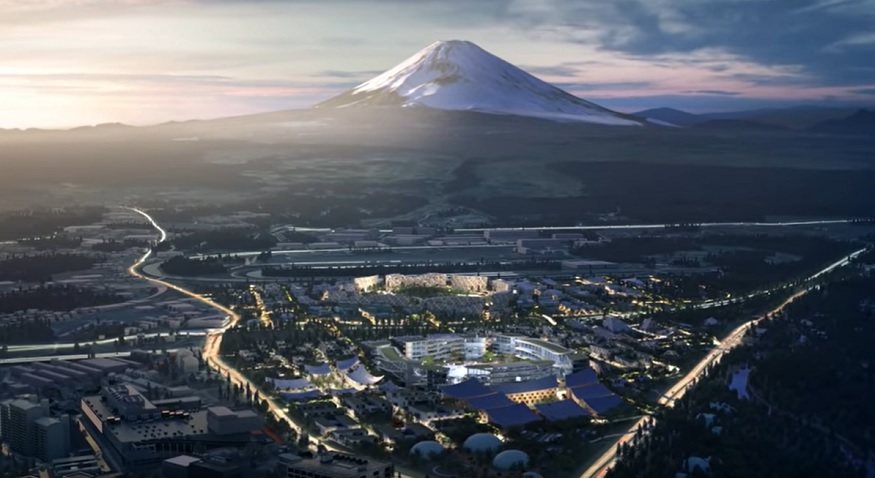
Toyota reveals plans to build prototype hydrogen fuel city at CES 2020
January 8, 2020The Woven City will be a fully connected ecosystem that runs on hydrogen fuel cells.
At the 2020 Consumer Electronics Show (CES), Toyota captured the interest of attendees with its plans to build a prototype hydrogen fuel city. Known as the Woven City, it’s a 175-acre site that will be located at the base of Mt. Fuji. This “city” of the future will be designed to function as a wholly connected ecosystem powered by hydrogen fuel cells.
The city will provide a real-world environment for the research, development and testing of technologies.
Green Car Congress reports that the Woven City will function as a home to both researchers and full-time residents. The researchers will have the freedom to develop and test technologies in this unique real-world incubator. Some of these technologies include robotics, autonomy, smart homes, personal mobility and artificial intelligence.
This hydrogen fuel city won’t only be for residents of Japan, either. Toyota intends to invite other commercial and academic partners as well as interested researchers and scientists across the globe to collaborate as well as work on their own projects in this special place.
The hydrogen fuel city will be 100% sustainable.
The plan for the city is for it to be fully sustainable. The building will reportedly be mostly constructed of wood to reduce the carbon footprint and will use wood joinery in conjunction with robotic production methods.
The building rooftops will be covered in solar panels to produce solar energy as well as power generated by hydrogen fuel cells. Plants will also play an important part in the design of the city, with native vegetation and hydroponics weaved throughout it.
Only fully-autonomous, zero-emission vehicles will be allowed in the main thoroughfares. Toyota e-Pallets will be utilized for transportation, deliveries and changeable mobile retail. What’s more, there will be three street types in the city. One street will be for only faster vehicles, another for a mix of lower speed, personal mobility and pedestrians, and a third that will be something like a promenade for only pedestrian use.
The hydrogen fuel city will have 2000 people to start, including a mix of Toyota employees and their  families, retailers, retired couples, industry partners and visiting scientists. The site is slated to break ground early next year (2021).
families, retailers, retired couples, industry partners and visiting scientists. The site is slated to break ground early next year (2021).



 With over 15 years of reporting hydrogen news, we are your premier source for the latest updates and insights in hydrogen and renewable energy.
With over 15 years of reporting hydrogen news, we are your premier source for the latest updates and insights in hydrogen and renewable energy.